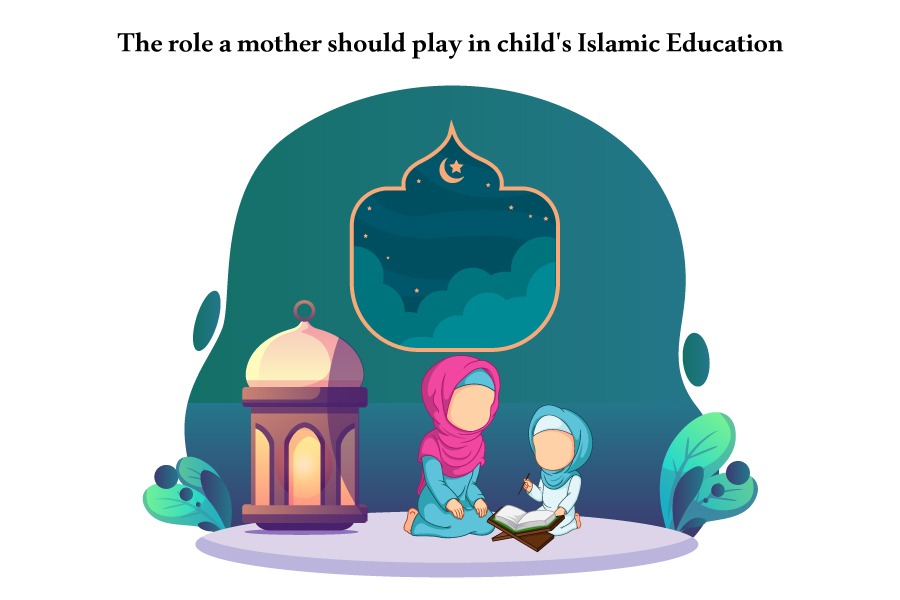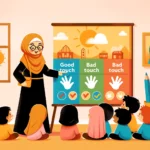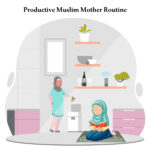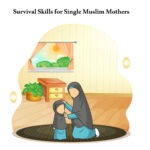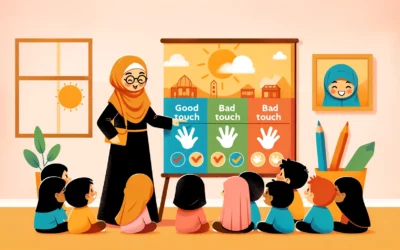Table of Contents
ToggleIntroduction: Embracing Islamic Education in North America
In the diverse landscape of North America, mothers hold a key role in shaping their children’s Islamic identity. This article explores various strategies and resources that mothers can utilize to help their kids learn and appreciate Islam, navigating the cultural diversity of North America.
Laying the Foundations: Introducing Children to Islam
The journey of learning Islam begins at home. Mothers can initiate their children into the basic concepts of Islam through stories, playtime activities, and by setting examples in daily life. Establishing a spiritual atmosphere at home, where Islamic values are not just taught but practiced, is crucial to effective learning.
Understanding Islamic Principles: Teachings of the Quran Simplified for Kids
Presenting the teachings of the Quran in a relatable and understandable manner for children is essential. Mothers can employ simplified translations and story-based approaches to make these teachings more engaging and accessible, allowing their children to learn Islam genuinely. Online Quran classes specially designed for kids can really help in learning Quran and thus Islam
Cultural Integration and Identity: Nurturing Islamic Identity in a Multicultural Environment
In North America’s multicultural tapestry, mothers play a vital role in helping their children navigate their Islamic identity. Celebrating Islamic festivals and understanding both the cultural differences and similarities can aid in this integration and foster an environment where kids learn Islam while embracing diversity.
Islamic Practices at Home: Establishing Daily Prayers with Children
Salah (daily prayers) holds significant importance in Islam. Mothers can play a pivotal role in making this a routine for their children, commencing with simple steps and gradually progressing to the complete practice. This hands-on involvement ensures that children truly learn Islam through daily rituals.
Islamic Education Resources: Utilizing Books and Online Resources
A plethora of resources, including age-specific books and online materials, are available for Islamic education. Mothers can leverage these resources to create a dynamic and interactive learning experience for their children, making the process of learning Islam more engaging.
Community Involvement and Mosque Activities: Connecting with the Local Muslim Community
Active participation in community activities and mosque events significantly enhances a child’s understanding and practice of Islam. It not only provides knowledge but also builds a support system, fostering a sense of belonging within the Muslim community as children learn Islam within a communal context.
Dealing with Challenges: Addressing Misconceptions about Islam
Misconceptions about Islam are prevalent in Western societies. Mothers must equip their children with the knowledge and confidence to address these misconceptions constructively, fostering a balanced understanding as they learn Islam.
The Role of Education and Dialogue: Encouraging Questions and Open Discussions
Encouraging open discussions and welcoming questions about faith aids in developing a deeper understanding. Mothers, equipped to answer these questions or guide their children to credible sources, facilitate an environment where children actively learn Islam through thoughtful dialogue.
Personal Development for Mothers: Continuous Learning for Mothers
A mother’s understanding and practice of Islam are pivotal in this educational journey. Continuous learning and personal development are fundamental, ensuring mothers provide the best guidance to their children as they learn Islam.
Creating an environment conducive to Islamic learning involves incorporating daily practices, utilizing engaging educational resources, and setting a positive example. Mothers play a vital role in cultivating this environment where their children actively learn Islam.
Conclusion: Uniting Faith and Culture
In conclusion, this article provides insights into how mothers can effectively blend Islamic teachings with the cultural dynamics of North America. By creating a balanced and enriching environment, mothers contribute to their children’s spiritual growth, ensuring they authentically learn Islam while navigating the complexities of their cultural surroundings.



